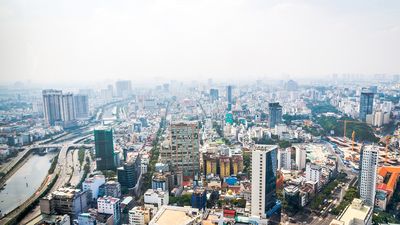Chad Ranked Last in Global Air Quality Report
Air quality in Chad shows levels of pollutants 17 times higher than the World Health Organization's guideline, according to the 2022 World Air Quality Report.
Chad has replaced Bangladesh as the country with the most polluted air in the world, according to the 2022 World Air Quality Report, published on Tuesday. The report, by Swiss air quality technology company IQAir, analyzed data from 131 countries and compared it to the World Health Organization's global air quality guidelines (AQG). Data collected from Chad last year shows air pollutants at a level more than 17 times higher than the WHO guideline. In last year's report, Chad ranked just under Bangladesh as the country with the second most polluted air.
"Air pollution continues to be the world’s largest environmental health threat," this year's report began. "Worldwide, poor air quality accounts for 93 billion days lived with illness and over six million deaths each year... Exposure to air pollution causes and aggravates several health conditions which include, but are not limited to, asthma, cancer, lung illnesses, heart disease, and premature mortality."
The report also notes that the data for Chad is only collected from a single monitoring point in the city of N'Djamena. Of Africa's 54 countries, only 19 have sufficient air quality data to be included in the report. However, that number increased from only 12 countries in the previous year. This underscores how the lack of access to monitoring stations in Africa and the Middle East has heightened the air pollution problem. From 2021 to 2022, the number of air pollutants (weighted by population) rose by 18% in Chad.
In 2021, the WHO set more strict guidelines by reducing acceptable amounts of delicate particulate matter used to measure air quality to reduce air pollution-related deaths and overall threats to global health. The change was based on new data that showed increased evidence of the detrimental health effects of poor air quality.
"Improving air quality can enhance climate change mitigation efforts while reducing emissions will, in turn, improve air quality," the WHO said in a news release about the new guidelines. "By striving to achieve these guideline levels, countries will be both protecting health and mitigating global climate change.”
Only six countries met the WHO guideline this year — an annual average of 5 micrograms of pollutants per cubic meter or less. They were Australia, Estonia, Finland, Grenada, Iceland, and New Zealand.
"Citizens in only 10% of the global countries, regions, and territories are breathing air that does not pose a risk to their health," reads IQAir's 2022 report.
- The Art Clubs Helping to Uplift Nairobi's Informal Settlements ›
- A Massive Tornado Hit South Africa and Here's What People Are Saying About It ›
- How COP27 Can Address the Massive Flooding in African Countries ›
